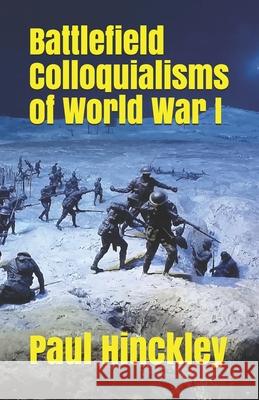Battlefield Colloquialisms of World War I » książka
Battlefield Colloquialisms of World War I
ISBN-13: 9781530057443 / Angielski / Miękka / 2016 / 110 str.
The colloquialisms of the British soldier on the Western Front were colourful and often irreverent. Many come from Indian and Arabic words acquired during earlier military actions in India and Egypt. Other colloquialisms are Anglicised words, phrases and place names learned from the French allies and German foes. The military phonetic alphabet, known as Signalese, also contributed. The term 'Ack-Ack' for example means 'Anti-Aircraft' fire and comes from the phonetic alphabet. The British forces on the Western Front was a diverse group. It comprised not just soldiers from Great Britain. It also included men from English-speaking former colonies like Australia, Canada, India, South Africa and New Zealand. Why does slang develop? All kinds of groups develop their own slang, and the military is no exception. Slang is an in-group language which has to be understood if you are to be accepted as a member. An outsider can pretend to be a member, but unless they know the slang, they will not be accepted. In strongly hierarchical groups like the military, the enlisted men use slang to have a laugh at the expense of the officers, what linguists call 'diminishing the dignity of the formal language'. This book records for posterity the language of the trenches on the Western Front, written nearly 100 years later, before it disappears altogether.
Zawartość książki może nie spełniać oczekiwań – reklamacje nie obejmują treści, która mogła nie być redakcyjnie ani merytorycznie opracowana.











